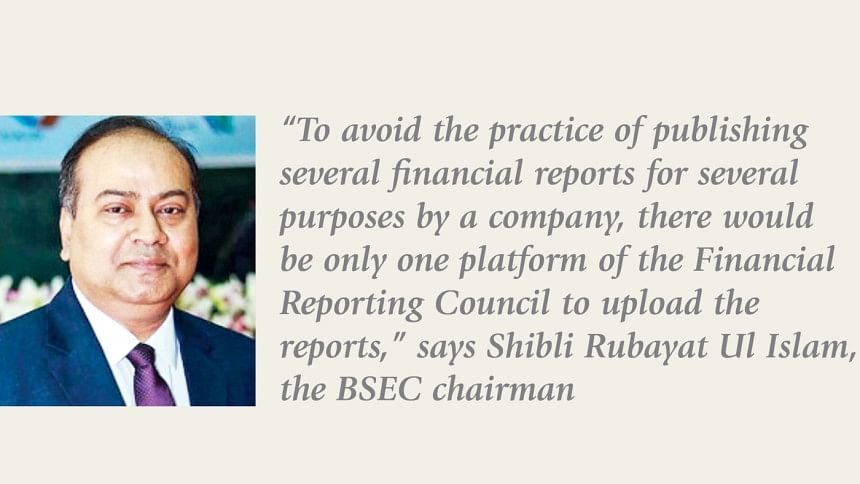Entire stock trading will be automated: BSEC chief

The trading platform of the stock exchanges is being wholly digitalised and automated by the stock market regulator so that all activities can be run without human assistance, said Shibli Rubayat Ul Islam, chairman of Bangladesh Securities and Exchange Commission.
Settling share trade in the platform currently requires manual intervention, he said.
"We will hire people who have experience at working in the international level so that all the infrastructure of the stock market becomes automated and market activities can be carried out easily in a smooth manner."
He spoke while addressing a webinar yesterday titled "Impact of budget on capital market and other development initiatives" organised by City Bank Capital.
"I have been in conversation with Dhaka Stock Exchange (DSE) since I become the BSEC chairman asking why they have not implemented their plans for an automated IT platform and why people are not availing the online trading platform because it would be easier for investors."
Only 2 per cent of beneficiary owner (BO) accounts registered for online trading, according to DSE data.
The tax gap between listed and non-listed companies was suggested to be reduced from 10 per cent to 7.5 per cent in the proposed budget for fiscal year 2020-21, Islam said.
"This tax gap reduction will be a discouraging factor when it comes to bringing good companies to the market."
Another proposal on allowing undisclosed money to be invested in the stock market on condition of a three-year lock-in period will only drive investors towards the money market where there are no such restrictions and the tax rate is the same, he said.
They will invest in the money market instead of the speculative stock market because the former requires no prior knowledge but some idea is needed for making investments in the stock market, he said.
"We have informed the government of these issues," said Islam.
There are, however, some positive initiatives towards developing a bond market, said the professor of the finance department at the University of Dhaka.
"Bond market is one of our areas where we would put the most emphasis for development. It can play a vital role in long-term infrastructure financing. On the other hand, banking sector also will not face the problem of financing long-term industry with short-term deposits."
The BSEC is scrutinising nine perpetual bonds for approval, he said, adding that they were also working on Sukuk bonds to bring Islamic banks into the bond market.
Replying to a question, Islam said they would not give approval to any company with a bad performance record to go public. "I will approve companies in which I would have personally invested in," he said.
Instead of a company having multiple financial reports based on their purposes, the financials will be uploaded on a single platform of Financial Reporting Council Bangladesh, accessible by the BSEC and other regulators like Bangladesh Bank and the National Board of Revenue (NBR), he said.
On the ongoing tussle between Grameenphone and Bangladesh Telecommunication Regulatory Commission (BTRC), Islam said he had already talked to the BTRC chairman as it was having a huge impact on the capital market.
"You will see a result within one month."
The dispute is over the BTRC's audit claim of Tk 12,579.95 crore in revenue sharing, taxes and late fees accumulated until December 2014 from the mobile phone operator.
The capital market needs a strong bond market to increase its depth, said Ershard Hossain, managing director of City Bank Capital.
The bond market can be an easy way out for sustainable long-term financing and a source of revenue in the coming days, but initially some incentives need to be provided to popularise it, Hossain added.
Faruq Mainuddin, managing director of Trust Bank, also spoke.

 For all latest news, follow The Daily Star's Google News channel.
For all latest news, follow The Daily Star's Google News channel. 



Comments